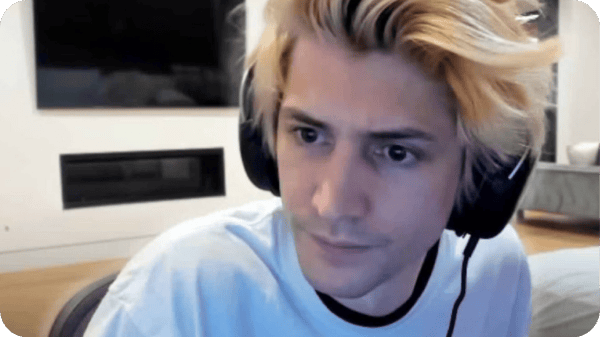
TOGETHER WITH
It’s Wednesday and Snapchat is giving Premium users something a little flashier than blue checkmarks: virtual castles.
FAKE IT TIL YOU BREAK IT
YouTube wants creators to think twice about depicting other people’s faces with AI
The policy update: YouTube isn’t messing around when it comes to AI deepfakes. As election season swings into high gear, the platform has updated its Privacy Guidelines to clarify that using genAI tools to depict someone’s likeness without consent is against the rules.
Thanks to that TOS update, users can now ask YouTube to remove videos showing “a realistic altered or synthetic version of your likeness.” Once a privacy violation is filed, the uploader has 48 hours to either remove the likeness or delete their video altogether. If the uploader takes no action within 48 hours, YouTube initiates its own review (and possible removal) of the video.
Serial offenders could face more than the removal of a few videos—including the loss of their accounts:
“We’re serious about protecting our users and suspend accounts that violate people’s privacy.”
The fine print: That policy change doesn’t mean takedowns are guaranteed. YouTube says it will consider “a variety of factors” before removing content, including whether a video has “public interest value” or features “a public figure or well-known individual engaging in…criminal activity, violence, or endorsing a product or political candidate.” The disclosure or nondisclosure of AI usage may also affect YouTube’s final choice.
Why it matters: YouTube’s decision to protect users from nonconsensual AI depictions comes at a pivotal moment in time. NSFW deepfakes of creators and celebrities have made the rounds on X and Twitch in recent months, while AI-driven phone scams and campaign ads have raised concerns about political interference.
The development of AI video tools like OpenAI’s Sora are likely to add to those concerns as Election Day approaches—meaning platforms will need to ramp up their moderation policies if they hope to keep misinformation at bay.
🔆 SPONSORED 🔆
What does the world’s #1 influencer talent agency look for in creators? Here’s the answer from 3 Viral Nation agents:
As a creator, having the right support system can revolutionize your career. That’s why Viral Nation Talent offers 360° creator representation—including personalized support from industry-leading agents.
But how do those agents decide who to sign? Creators wanted to know, so we sat down with 3 Viral Nation talent agents to find out:
1. “I love when a creator is authentically themselves.” 💯
Toni-Rose Goulden - Senior Talent Agent of Fashion, Beauty & Lifestyle Talent: “I work with so many fabulous creators who are very passionate about content creation. I love working with authentic people who simply love sharing their lives."
2. “I look for someone who is committed to content creation.” 💪
Everett Champion, Covering Agent: Creators looking to connect with a talent agent should be committed to “finding new ways to express themselves and not being afraid to change how they approach their content.”
3. “I have three non-negotiables.” ✍️
Joanna Giunta - Director of Talent, Image: “The Talent needs to be focused on building a community that’s connected to them,” while also being “willing to invest in themselves” and “open to passing on lucrative offers with the wrong companies.”
Hit the button below to learn how Viral Nation Talent can supercharge your growth:
HEADLINES IN BRIEF 📰
Top streamer xQc says he makes $6,000 a day from Twitch ads. Do the numbers add up? (Tubefilter)
According to Google’s 2024 Environmental Report, the company’s greenhouse gas emissions have increased by almost 50% in the last five years. The culprit: data centers dedicated to powering AI. (Engadget)
Are downvotes coming back to Twitter? Code discovered by reverse engineer Aaron Perris suggests the answer is yes—but only if X can find a way to differentiate its version of votes from Reddit’s. (TechCrunch)
Meta is updating its content policy to allow users to mention the most-moderated word on its platforms—the Arabic term ”shaheed”—without automatically facing takedowns. (Engadget)
DATA • U.S. TOP 50 📈
U.S. Top 50: What happens when a channel defies classification?
The question: Whether you’re a creator or a sponsor, data analysis is key to lasting success on YouTube—but what happens when the available information isn’t so easy to classify?
The creator: Some of YouTube’s top stars have climbed the charts by defying categorization. Kika Kim is an obvious example: the Uzbekistan-born Korean creator and recent L.A. transplant has attracted nearly 10 million subscribers by offering comedic Shorts, long-form makeup tutorials, travel vlogs, lifestyle content, mukbangs, and more in both English and Russian.

Kim’s channel earnd over 367M views in June. Data from Gospel Stats.
That variety has earned Kim more than 3 billion lifetime views and a spot at #39 in our U.S. Top 50 chart. But considering her cross-continental audience and longtime residence in Kazakhstan, is it correct to define her multilingual YouTube hub as a U.S. channel?
Billboard—which defines a U.S. artist based on their place of origin and primary market of activity—might categorize Kim as an Uzbekistani, Kazakhstani, or U.S. creator. It all probably depends on her audience.
Should we take a similar approach when ranking YouTube’s most-watched channels? Fill out this poll to let us know:
How should we decide if a channel belongs in the U.S. or Global charts?
WATCH THIS 📺
Is AI ruining the internet?
The video essay: If you’re still on the fence about the pros and cons of chatbots, allow Drew Gooden to put your mind at unease. In his latest viral video, the creators runs through dozens of examples of AI running rampant across the internet.
Dubious Google Search summaries are only the beginning of that chaos. From bot-filled Quora comment sections to AI-generated Facebook ads, Gooden makes a strong case for the “dead internet” theory.
So, what do you think: has the web essentially become an abandoned mall stocked with walking, talking mannequins?

Was this email forwarded to you? Subscribe here.
Today's newsletter is from: Emily Burton, Sam Gutelle, and Josh Cohen. Drew Baldwin helped edit, too. It's a team effort.e






